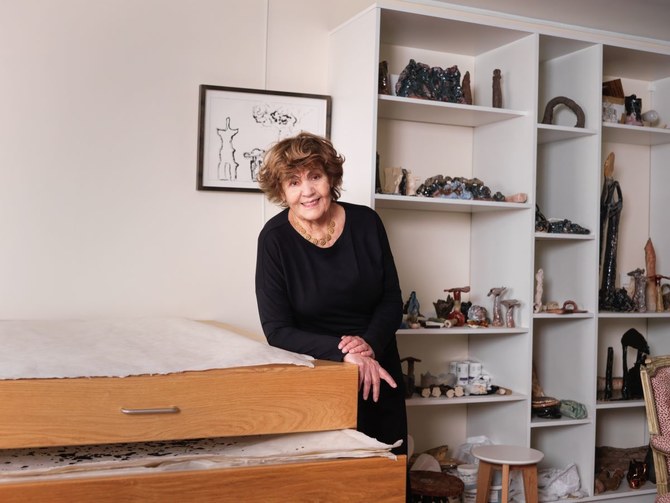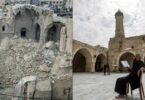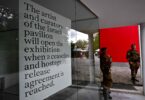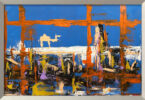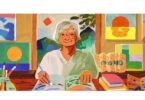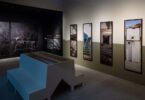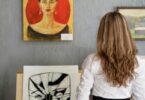Rebecca Anne Proctor
VENICE: Paris-based Lebanese artist Simone Fattal’s latest work is currently on display in the Church of San Lorenzo in Venice, Italy.
Fattal’s powerful installation is titled “Sempre il mare, uomo libero, amerai!” which translates from Italian to “Always the sea, freeman, you will love!” from the poem “Man and the Sea” by Charles Baudelaire, which describes the waves of the sea as the mirror of the soul. The sea, notes Baudelaire in his poem, is a natural and feminine element that generates and nourishes. Fattal’s work similarly offers a poignant and loving reflection of the Mediterranean, its constant changes, and the cultures it has separated and unified.
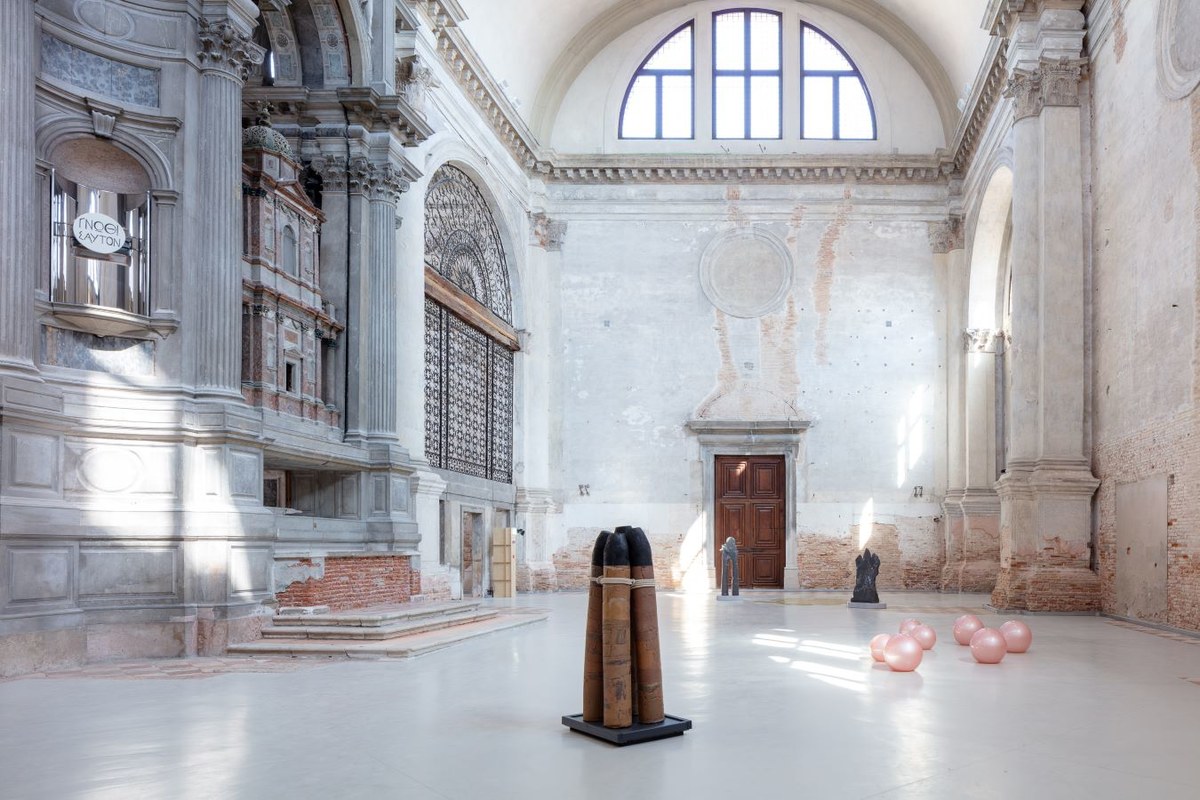
“Through my work I try to transcend the actual surface of things to make it more meaningful by recollecting old myths and stories,” Fattal tells Arab News. “I think this reconnection can bring a lot to a person, inside. There were hard times before us and there are hard times ahead of us.
“I create abstract art because it offers silence and silence is a constituent to art otherwise you can’t really go into it — art needs to be meditative,” she continues.
The works are part of the exhibition “Thus Waves Come in Pairs,” a line from the poem “Sea and Fog” by the late Etel Adnan. It runs at Ocean Space in Venice until Nov. 5 alongside other new commissions by Petrit Halilaj and Alvaro Urbano.
“There are many Mediterraneans: the geographical, the historical, the philosophical … the personal, the one we swim in,” Adnan once said. “It’s an experience to swim, it is something you can’t explain to somebody who never swam. This feeling of being held up by this water.”
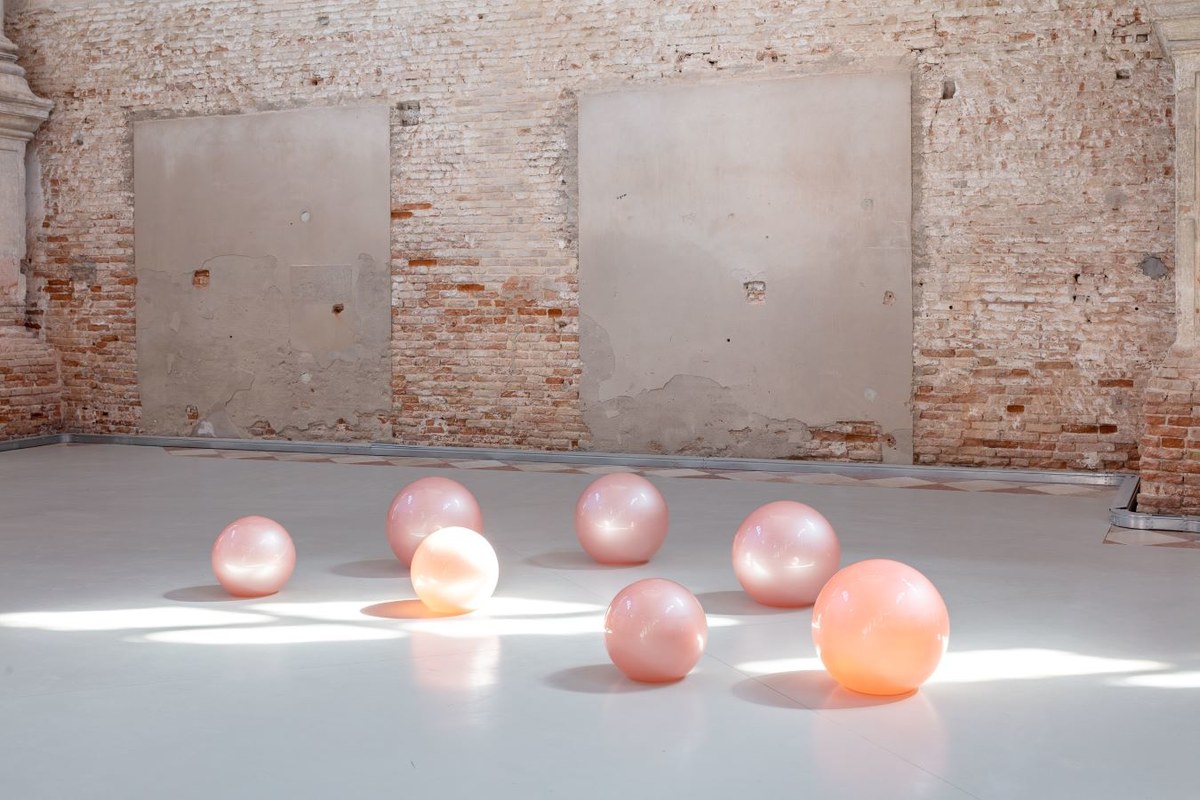
Fattal’s installation comprises two sculptures that occupy the empty niches of the church’s large Baroque altar. One is “Young Boy,” an abstract figure colored burnt yellow. The other is “Bricola,” a large ceramic sculpture with rich natural hues inspired by the eponymous Venetian wooden poles used to guide boats through the city’s canals evocative of navigation. It also includes two monumental abstract figures “Máyya and Ghaylán” — a pair of lovers celebrated in classical Arabic poetry, whom Fattal separates and joins by rectangular glass plates on the ground evoking a golden sea — and “Contrast,” a series of pearly spheres made from pink Murano glass onto which Fattal has engraved an inscription in lingua franca, a mestizo language drawn from Italian, French, Spanish and Arabic that was once spoken by pirates, merchants, prisoners and slaves along the shores of the Mediterranean. These spheres lie on the floor on the opposite side of the space from the altar.
The inscription on the spheres is taken from the text of the earliest evidence of lingua franca, “Contrasto della Zerbitana” (The Conflict with the Woman of Djerba), a 14th-century poem about an argument between a sailor and the mother of a woman he mistreated, set on the island of Djerba, off the coast of Tunisia.
Poetry, as Fattal demonstrates in these new works, serves as a vehicle for past and present transmission from one language and culture to another. She portrays the complexities and forgotten memories that shape the colonial past and neocolonial present of the Mediterranean and its varied cultures and peoples.
“I wanted to link my work here not only to the church and the Mediterranean but also to the Gulf and the history of pearl trading there,” she tells Arab News. “I was also interested in how the Arab world connected to Venice through the trade of pearls — that’s where Venetian women once got their pearls: from the Gulf.”
Fattal also stresses that the works demonstrate other materials and skills that originated in the Orient, including glass blowing and velvet. Her works, at once poignant and melancholic, aim to resurrect the crucial historical link between Venice and the Orient, the East and the West, and show how the result of such trade is still with us — through cultures, traditions, languages, and art.
As Fattal notes: “All that you see in Venice that is beautiful are symbols of exchange of beauty that took place via the Mediterranean Sea.”
Courtesy: arabnews

